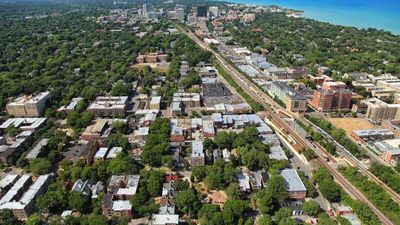Illinois City Is Using Weed Sales Tax To Fund Reparations For Black Residents
Evanston, Illinois, is the first city in the United States to fund reparations for Black residents.
Evanston, Illinois, will be the first city in the United States to fund reparations for Black residents — and it's using legal recreational marijuana sales to do so.
In a report from ABC News, the city plans to distribute "up to $25,000 per eleigible resident to use for housing" this year. First passed in 2019, the reparations resolution was led by Alderman Robinn Rue Simmons, and was inspired by her experience growing up in Evanston.
"The only legislative response for us to reconcile the damages in the Black community is reparations," Simmons said.
To do that, the city is putting a 3% tax on newly legal recreational marijuana sales. Evanston was included in the Cannabis Regulation and Tax Act that was put into effect last year. The act not only made possession and use of marijuana for adults legal, but expunged criminal records for convictions of up to 30 grams.
"It's the most appropriate use for that sales tax," Simmons said. "In our city, 70% of the marijuana arrests were in the Black community. And we are 16% of the community. All studies show that Blacks and white [people] consume cannabis at the same rate."
The city plans on dispersing funds in the spring. Other states throughout the country have been addressing reparations in recent years as well. In late 2020, California Governor Gavin Newsom signed a bill creating a task force that will make recommendations for how reparations for Black californians (especially those who are descendants of slaves) could happen, whether through compensation or restitution.
